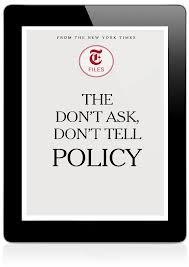Employment Issues
I’ve got 99 problems and my co-worker is one
Your boss is great, you get along with your co-workers and for the most part you really like your job. In fact, you would have the best job ever if it wasn't for that one person...that one person who is always spreading office gossip or that other guy who always made rude comments. It just makes for an uncomfortable situation when there are those few people who cause bumps in the road. How do you approach that? You can't just call someone out in front of the whole office...or can you? Here are a few common issues that occur in the office and some tips on how to handle the situations.
Bullying
Bullying is a negative behavior that includes but is not limited to verbal threats, personal attacks or purposely excluding other co-workers. It goes without saying that bullying can create stress and cause the work environment to be unpleasant. How can you stop or prevent this from happening?
- Look into policies the company may have.
- Look into laws created by the state or country.
- Use your voice to calmly and directly approach the person.
- Consult with management or HR about possible solutions.
Embarrassing Situations
Unfortunately embarrassing situations occur all the time. Whether it is something that happened to you or you saw it happen, you immediately want to run and hide. Well, before you use that option, check out some others that may help you learn how to dissolve some of the embarrassment.
- Acknowledge the situation with a small joke (for example if it was you who was embarrassed).
- Deal with it-do not ignore because it will only prolong the embarrassment.
- Stay relaxed and keep composure.
- Never assume.
- Keep the acknowledgement brief.
Friend or foe?
It seems as though there is always that one person who is nothing but smiles and compliments to your face, but as soon as you turn your back it seems as though they try to undermine everything you do. Often referred to as frenemies, these people make the work environment an edgy place to work. How can you rely on them? How do you know their best interest is for the company?
- Evaluate your own behavior.
- Do not assume.
- Do not retaliate.
- Use a different point of view-if you were the boss, how would you want the situation to be handled.
- Approach with a clear sense of purpose.
Distraction because of a co-worker's appearance
So there is this new intern. She is about 20 something, super cute, but wears tiny skirts and low cut shirts. Not a bad outfit for the clubs but for the office? Should you say something? Or pretend not to notice? The customers are beginning to take notice and do not have positive comments. There needs to be a change, but how should this be approached without hurting feelings or creating an awkward situation?
- If you manage someone who is violating the dress code then it is your responsibility to bring attention to the situation.
- Be helpful, not hurtful.
- Use the correct terms-do not use "cute" words or words that have a certain stigma. It is important to be straightforward.
The office gossiper
Have you heard the latest?! Office gossip is so two years ago! Or so I heard...
Wait, when has gossip ever been a positive trend? I doubt it has ever been positive but it seems to always happen. Gossip is often unavoidable, but here are a few tips to try to limit its existence from the workplace.
- Polite, straightforward confrontation.
- Be careful what you share-keeping your personal matter private does not allow the gossiping to pertain to you.
- Distractions. Make it so that the office gossiper does not have time to gossip but is busy helping in any possible way.
The rude co-worker
There are also the kinds of people who use sarcasm as a means of communication. That or they are always rude. Being around negativity decreases productivity and makes the work environment negative as well.
- View the situation from both sides to ensure you are not overreacting.
- Talk to a friend who is not part of your work.
- Do not blame.
- Use your kindness and positivity whenever you are around this person.
- Be clear and assertive.
- Speak with HR or a manager.
So here are a few tips on how to approach sticky situations. However most of them involve some form of communitcation with that person or someone of a higher position such as a manager. Make sure that you tactfully bring these issues to attention and that you are not reverting to your childhood notions of tattling. The issues should be serious enough that they affect the productivity and morale of the team, not a personality or personal conflict. Furthermore, it is usually better to directly confront the person first. Many times a person does not recognize his or her actions are distracting and a direct approach can easily solve the issue without involving unnecessary parties. Lastly, make sure that while bringing attention to these issues, you are looking for a solution and not just complaining.
Blog
Top eBooks Under $5 on Discrimination in the Workplace
Kindles, iPads and other electronic reading devices have made it more convenient for you to access materials, both for leisurely purposes and for informational purposes. With eBooks, you can obtain information to not only help you succeed, but to also help with possible problems that may occur in the workplace. This list is composed of eBooks from Amazon.com to help you learn how to handle discrimination of any kind in the workplace. What is even better, is that these eBooks are all under five dollars, yet provide detailed information that is easy to follow.
*Note: Ratings are all out of five stars.
by Cathy Harris
Price: $3.58
Rating: N/A
by Cathy Harris
Price: $3.58
Rating: N/A
The Don't Ask, Don't Tell Policy
by The New York Times
Price: $2.05
Rating: N/A
Workplace Diversity: Does Not Mean Equal Opportunity, Equal Growth, and Equal Advancement
by Richard Brown
Price: $3.59
Rating: N/A
by Cathy Harris
Price: $3.50
Rating: 1
by Bikash Kalita
Price: $3.58
Rating: N/A
by Richard Campbell
Price: $3.57
Rating: 5
Baby Boomers Facing The World Age- Discrimination- Employment
by James Williams
Price: $4.11
Rating: N/A
Related Articles:
- What are eBooks?
- Top eBooks Under $5 on Resumes
- Top eBooks Under $5 on How to Find a Job
- Top eBooks Under $5 on Interviews
- Top eBooks Under $5 on Cover Letters
- Top eBooks Under $5 on Working Abroad
- Top eBooks Under $5 on Communication
- Top eBooks Under $5 on College Preparation
- Top eBooks Under $5 on Networking
- Top eBooks Under $5 on Reference Letters
- Top eBooks Under $5 on How to get a Promotion
- Top eBooks Under $5 on Volunteering
- Discrimination
- Gender Discrimination
- Age Discrimination
- Racial Discrimination
- Disability Discrimination
Employment Issues
Employment Security Commission
What is Employment Security Commission?
It is a federal and state program for the unemployed to still receive money while they are out of work and searching for more employment. It is designed to help support families and households while the unemployed candidate is searching for another job. This program does have its limits and is not meant to pay the candidate the same amount that he or she made previously, or to enable the same standard of living before the candidate lost his or her job.
What does it offer?
The basic function of the program is that it pays the unemployed while they are searching for other employment options. However it also offers other services and benefits to help enhance the knowledge of the candidates. The program wants to help and encourage employment, not support the unemployed. Other benefits include: career information, resume help, training programs and job fairs.
How does it work?
The government began collecting a payroll tax on employers under the 1935 act. States were then also encouraged to set up programs following similar and broad guidelines. Currently, all states have some form of this program. Although each state has its own form of the program, they still follow the federal rules and guidelines. Most are standard with little differences such as the name of the program may vary from state to state as well as the specific benefits that are offered.
Who can apply to recieve the benefits?
Generally, anyone who lost their job can apply. However there are conditions that must be met before the unemployed candidate receives the insurance. The candidate must be out of work for reasons other than their own. For example, he or she must have been fired or if he or she quit, the reasoning must prove that there was legitimate cause such as safety issues. Also, in order to file for unemployment, the candidate needed to have worked for his or her previous employer long enough to prove that the employer paid a sufficient amount of money for the candidate into the system. The standard time period that the a state looks into the work history is about 15 months.
How long can you use it?
The general amount of time to receive unemployment benefits is about 26 weeks. However, there is the ability to apply for an extension that goes up to about 99 weeks. The amount of time depends on the qualification of the candidate.
For more information:
or
- Visit the program that your own state offers.
Oregon
Rhode Island
South Dakota
Employment Issues
Disability discrimination
Disability discrimination is when an employer that is covered by the Americans with Disabilities Act or Rehabilitation Act treats a qualified candidate who has a disability differently or unfavorably due to that disability. The disability could be current or the candidate may have a history of a disability such as cancer or another disease that prohibited working in the past, but the candidate is now in remission or able to continue working. Disability discrimination also applies to those who have mental impairments as well as physical.
The law covers disability discrimination in the workplace, harassment because of disabilities and reasonable accommodation for disabilities.
The United States Employment Opportunity Commission provides detailed information about each of those categories as well as links to further information about disability discrimination. Other sources include include information on your rights as a person with disabilities, where to go if you are being discriminated against as well as other accommodations and employment options.
-
Blog12 years ago
Sorority Recruitment
-
Resume and CV13 years ago
Letters of recommendation / references
-
Resume and CV13 years ago
Resume or Curriculum Vitae (CV) ?
-

 Resume and CV13 years ago
Resume and CV13 years agoWhich Resume Format Should I Choose?
-
Resume and CV13 years ago
Basic rules for writing your resume
-

 Cover Letter13 years ago
Cover Letter13 years agoThe cover / motivation letter
-
Cover Letter13 years ago
Europass CV
-
Sample Resumes, Examples and Templates13 years ago
Reference Example

